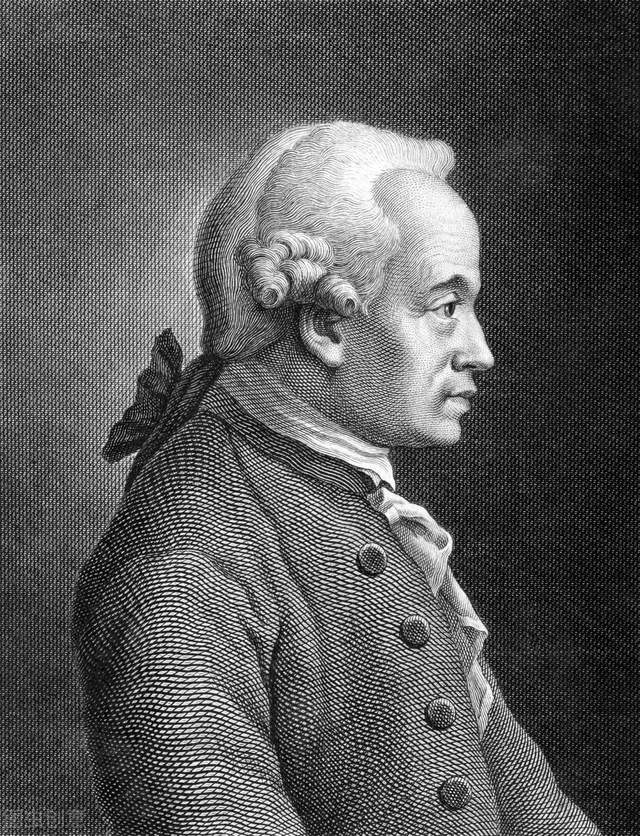Self -discipline is freedom!How does Kant connect freedom with self -discipline and rationality?
Author:Liu Xiaoshang Time:2022.07.06
In the previous issue, we introduced Kant's moral outlook for one cornerstone and two prerequisites. One cornerstone is: the will of good, two premise: rationality and freedom. Today, let's take a look. In Kant's moral philosophy, there is any inner connection with morality and rationality and freedom.

First, what is freedom? Many people may have heard of Kant's view of freedom: "self -discipline is freedom." Many people inspire themselves as their own motto, but this sentence is not a simple slogan, and there is a profound connotation behind it. From "self -discipline is freedom", self -discipline is freedom, and the opposite of "self -discipline" here is "his law". In Kant's view The behavior we did is not moral value, but people who are about to be around by desire and preference.
Because as long as we are pursuing the satisfaction of desire, anything we do is actually for some kind of external purpose. If Wang Yangming's "conscience" is understood, it is the original heart that contaminates selfishness and desire. The reason why we seeks food is because we have been tempted by food, and the food has made us desire; we pursue famous brands and luxury goods because we have been tempted by material desires and vanity, and they have made us desire to buy.

Kant is not to say that it is not right to satisfy all kinds of desires and preferences, but to say that when we act according to our desires and preferences, this is not a truly free action, but based on a regularity of external given rules and the regularity of the rules given. action. This action is a kind of "his law" to Kant, just like the dominance of the law of nature, which cannot be regarded as true freedom. Only when our will is determined by the self -discipline and is dominated by the rules I am given by myself, we are free. So Kant said that freedom is reflected in a kind of self -discipline, not his law. Freedom does not mean what we want to do, but that we don't want to do anything, we can do nothing.
Therefore, if we have freedom, we must be able to act according to the rules that are given or imposed on our laws, and act according to the rules we set for ourselves. How can this law come?
The answer given by Kant is: rationality.

The reason why people distinguish other animals is because we are rational existence and have the ability to think rationally. If rationality determines my will, then this will will become a force that is not dominated by nature or tendencies. This is the guarantee of our freedom, because of rationality and freedom, self -discipline and freedom. As a result, Kant associated rationality and freedom.
Sander believes that Kant is equivalent to freedom, which is different from utilitarianism as a means and tools that realize some purpose. Reason is not a tool to maximize happiness, or even serving any experience purposes. Kande gives reason to priority. It is a pure rationality and the fundamental attribute of human beings. In other words, Kant believes that the value of rationality is not in its tool value, but that it makes our freedom and morality possible.
So how do you do this?

Kant distinguishes two ways to command or control your will. The hypothesis command is a conditional command. For example, if you don't want to be fined, then you don't want to run through the red light. Kant said that if a behavior is good only when it is a means to achieve other things, then this command is an illusion command. The absolute command is unconditional. For example, if you abide by the traffic rules, you do not break through the red light, not because the red light will be fined, but because you think that you should not have a red light. This matter itself has moral value, not to avoid fines. Then you follow the absolute order. Essence
Kant's moral principle is also called "absolute command", which has three criteria.
First: When you act, you only act in accordance with the criteria you can also become a general law.
Second: When you act, you must always treat you or others as a means to treat it, and always treat them as the goal.
Third: When you act, you must follow one that may exist, and the members of the Kingdom in the Kingdom of the Kingdom will adhere to the rules of the universal law.
In fact, these three guidelines look a bit strange, but you can simply summarize two sentences in two sentences: you do n’t want to do what you do, do n’t apply to others; people are the purpose, not means.

Actions with moral value are a "absolute order" because it is "unconditional". Kant believes that an absolute order has nothing to do with the content of this behavior and its expected purpose. The reason why we do this behavior is precisely because of this behavior because this behavior is because of this behavior. It is good in itself, which is good, not to do this for a certain external purpose. This also reflects the freedom of self -discipline. Only in this way can it be qualified to have moral value. At this point, Kant associated rationality, freedom and morality.
When we act ourselves, we do something for this thing itself, it is the purpose. We are no longer the tools that are exterior to our given purposes. Kant gives humans with special dignity through the ability of "self -discipline" to distinguish between people and things.
The reason why people have the sense of self -discipline is because people are rational and can control the will of freedom. Kant said that everyone is worthy of respect. This is not because we have ourselves, but because we are rational and can reason; we are also free -willed existence, and we can act freely and choose. This is how we are people as people. The reason for the dignity of human beings emphasizes the purpose itself, which deeply reflects Kant and respects people with rationality and free will. In the field of epistemology, Kant proposed "human natural legislation", and Kant established the subjectivity of people in the field of cognition; in the field of morality, Kant proposed that "people are the purpose, not means", and people are rational. No matter who you are or where you are, you are worthy of dignity and respect. Kant's moral philosophy looks very noble and convincing, but there are many controversy, such as the purpose and means are not clear; for example, Kant believes that people are rational existence, have free will, but human rationality and free will They are all very limited, and in Kant's moral outlook, there are a lot of priority, which have made his moral outlook a lot of doubts.

But no matter what, Kant's emphasis on human dignity has profoundly affected the concept of human rights today, provided a strong philosophical foundation for us to respect the universal human rights today. Sander pointed out that the concept of personal rights, fairness and justice preached today's philosophical foundation, which is promoted by liberals, largely benefits from Kant, and Kant's thoughts have profoundly affected another important Western philosopher in the 20th century. : Rores. In the next article, let's take a look at Rars's moral philosophy. What do you talk about?
Well, this is the content of today. If you like my content, please like the collection and follow me. See we next article.
- END -
Careful and precisely guarding the most beautiful sunset
Recently, the Central General Office issued the Opinions on Strengthening the Construction of the Party's Party Construction in the New Era, emphasizing that retired cadres are precious wealth of th...
Our city holds the creation of a national civilized model city volunteer in action activities

Jiaodong Online June 18th (Reporter Li Gang) On the morning of June 18, the Wonder...